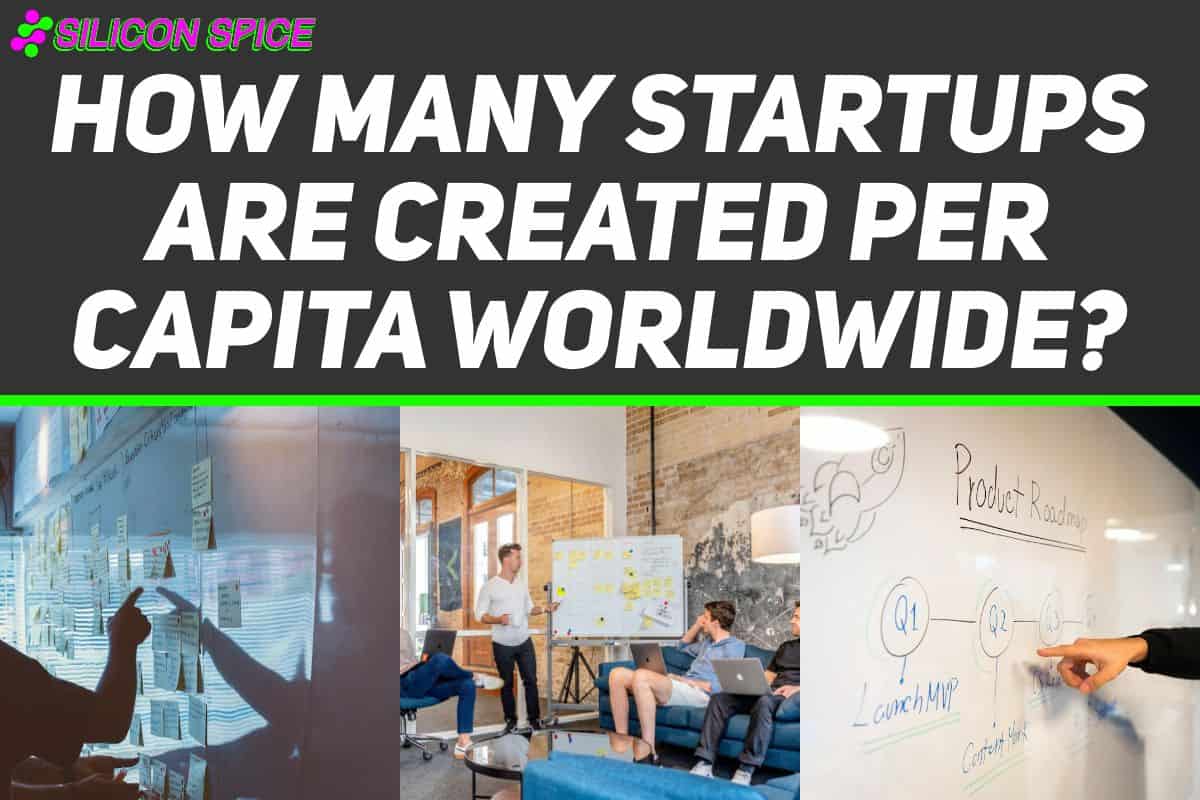The rapidly evolving startup landscape continues to reshape industries and redefine customer expectations worldwide. As the calendar turns to 2023, a new wave of disruptive startups promises to make headlines with their innovative solutions and ambitious visions. From next-generation technology to sustainable social impact, these startups span various sectors and challenge their respective domains.
In this article, we will explore a few of these promising startups that are pushing the boundaries of what’s possible and preparing to make measurable impacts in the coming years. These trailblazers are attracting significant attention and investment from venture capital firms, which reflects their potential to revolutionize industries and achieve remarkable growth. We aim to provide a snapshot of these rising stars in the realm of startups and offer a glimpse into the future of innovation.
While this list may not encompass every up-and-coming startup worth noting, the featured companies represent a diverse range of sectors, origins, and development stages. Among them are the British e-bike mobility platform HumanForest, the Indian biofuel venture Bijson, and the open cloud-based banking platform Tink. Join us as we delve into the compelling narratives of these startups on their path to reshape the world.
Top Emerging Startups
Innovative Tech Startups
Some innovative tech startups stand out for their potential to transform industries:

- Saie – A clean beauty startup that prioritizes affordability without sacrificing the quality of its line of skin tints, balms, kits, and more. Based in New York, they have received funding from Unilever Ventures and G9 Ventures.
- Startup X (fictional example) – This company utilizes AI and machine learning to revolutionize how businesses optimize their processes, saving time and resources. They have raised significant funding in their recent funding rounds.
Sustainable and Circular Economy Startups
Sustainable and circular economy startups in 2023 are working to reduce waste and environmental impact:
- GreenTech Startup Y (fictional example) – Aiming to combat the global plastics pollution problem, this startup has developed a game-changing recycling technology that can transform single-use plastics into high-quality products.
- Eco-friendly Company Z (fictional example) – Focused on renewable energy, this business has designed an affordable and efficient solar panel system to help households become more energy independent.
Web3 and Blockchain Startups
A few notable Web3 and blockchain startups in 2023 are poised to change the tech landscape:
- Blockchain Project A (fictional example) – Building a decentralized finance (DeFi) platform that aims to offer an alternative to traditional financial services, combining cutting-edge blockchain technology with a user-friendly interface.
- Web3 Company B (fictional example) – Breaking barriers in online privacy, security, and control, this startup is developing Web3-enabled tools and services that empower users to manage and secure their digital lives seamlessly.
These startups, among many others, represent the top emerging ventures of 2023. Their innovative solutions, commitment to sustainability, and passion for technology serve as a driving force toward a better future across various domains.
Impact of Market Conditions on Startups
Pandemic Effects
The pandemic greatly impacted the business world, forcing startups to adapt quickly to various changes. Remote work became a necessity, and businesses began to invest more in digital tools for effective communication and collaboration. Economic uncertainty also led startups to explore digital marketing options like email or SEO marketing, which offer ROIs of 3,600% and 2,200%, respectively, enabling them to reduce expenses related to paid social media or pay-per-click marketing 1.
Economic Downturn
An economic downturn can create challenges for startups, such as reduced consumer spending and increased competition. However, these conditions can also inspire creativity and innovation among emerging businesses:
- High unemployment rates may drive individuals to become entrepreneurs as they seek new income streams.
- Startups offering affordable alternatives to traditional products and services may thrive during economic downturns.
- Existing industries might experience a shake-up, opening the gates for innovative startups to disrupt the market.
Opportunities
Despite the pandemic and an economic downturn, several industries and sectors have been identified as promising for startups in 2023 and beyond:
- Biotech: With the focus on healthcare heightened by the pandemic, a new wave of biotech startups is expected to make significant contributions to the medical and health sectors 2.
- Retail: In 2022, retail dominated the US startup market, accounting for 15.05% of new businesses. This trend is expected to continue, with both brick-and-mortar stores and eCommerce businesses succeeding in the retail space 3.
Major Technological Innovations
Artificial Intelligence (AI) Investments
Artificial Intelligence (AI) has continued to gain significant investments as it plays a vital role in shaping the future of various industries. AI startups addressing diverse needs, such as healthcare, finance, and autonomous vehicles, have attracted immense venture capital funding. Some key innovations include natural language processing, computer vision, and machine learning algorithms that enable businesses to harness massive volumes of data and improve decision-making processes.
Enterprise Tech and Automation
Enterprise tech startups are revolutionizing the workspace by automating mundane tasks and simplifying complex processes. By leveraging advanced technologies like blockchain, cloud computing, and the Internet of Things (IoT), these companies aim to provide cutting-edge solutions that enhance productivity and efficiency. Automation has brought about new opportunities in various sectors, such as supply chain management, customer support, and even robotic process automation (RPA).
Data Analytics and Cybersecurity
With the surge in data generation, advanced analytics startups are emerging to analyze and extract valuable insights from this data. These insights help organizations make data-driven decisions, optimize operations, and stay ahead of the competition. Also, as cybersecurity continues to be a pressing concern with the rise in cyber threats, startups focusing on securing data and digital assets are gaining significant importance in the tech landscape. These cybersecurity startups employ sophisticated techniques to safeguard sensitive information, detect potential vulnerabilities, and ensure data privacy.
Global Startup Hubs
Silicon Valley and Europe
Silicon Valley continues to be the leading hub for technology startups in the United States. Home to tech giants like Google, it attracts entrepreneurs from around the world, providing them access to a pool of talented professionals, top-tier accelerators, and a culture of innovation. However, European cities such as Paris, Berlin, and London have emerged as strong competitors, fostering their own startup ecosystems.
- Silicon Valley: Known for its concentration of high-tech firms and venture capital investment.
- Europe: Cities like Paris, Berlin, and London have grown their ecosystems and attracted entrepreneurs with their business-friendly policies and support infrastructure.
Asia-Pacific Region
The Asia-Pacific region has been experiencing a surge in startup activity, with cities like Singapore, Hong Kong, and Bangalore emerging as hotspots. Rapid economic growth, improving regulations, and increased funding have contributed to the emergence of these hubs.
- Singapore: A favorable business environment, strong government support, and a strategic location make it an ideal place for startups across various industries.
- Hong Kong: The city’s world-class infrastructure and proximity to mainland China offer startups myriad opportunities for expansion and partnership.
- India: With a vast pool of talent, government initiatives, and a large consumer market, Indian cities like Bangalore and Mumbai continue to rise in prominence in the startup world.
Emerging Hubs in Africa
Africa is witnessing the rise of several startup hubs, driven by booming populations, growing economies, and increasing internet penetration. In particular, Nigeria, South Africa, and Kenya are making substantial progress in developing vibrant startup ecosystems.
- Nigeria: Lagos, Nigeria’s vibrant commercial capital, has seen significant growth in technology startups driven by a young, entrepreneurial population and mobile connectivity.
- South Africa: Cape Town and Johannesburg are attracting startups due to their developed infrastructure, access to funding, and support from local governments and communities.
- Kenya: Nairobi is rapidly becoming an innovation center for East Africa, spurred by a strong tech community, incubators, and accelerators working together to nurture promising startups.
Key Sectors in 2023
Digital Finance and Cryptocurrency
In 2023, Digital Finance and Cryptocurrency are set to make waves as startups continue to shape the future of finance with innovative technology. This sector is increasingly attractive to investors because of its potential to disrupt traditional financial systems, reshape transparency, and revolutionize the way in which transactions are conducted. ULA, a cryptocurrency startup, is at the forefront of this trend by using blockchain technology to create a transparent and decentralized financial environment for its users.
A key aspect of this sector involves AI-powered solutions, which streamline and simplify financial management, making it more accessible and efficient for businesses and consumers. Additionally, the proliferation of digital wallets and crypto transactions has proven particularly valuable, allowing users to transact seamlessly and securely.
Edtech and Language Learning
The Edtech sector is poised for growth as more and more people turn to online platforms for learning and enrichment. With a focus on language learning, several startups have emerged, leveraging AI-powered tools to create personalized and immersive learning experiences. These platforms not only help students learn new languages but also aid in retaining information and bolstering fluency.
Investors are eyeing this potential, leading to increased funding for edtech startups that exhibit robust potential for scalability and impact. By offering innovative solutions that cater to diverse learning needs, these companies have the potential to reshape the education industry and make learning more accessible to people around the world.
E-commerce and Logistics
E-commerce has experienced exponential growth, which has created a significant need for efficient logistics solutions. Startups in this sector aim to address the rising demand, offering advanced technologies and innovative platforms that streamline the e-commerce and logistic processes.
Key areas of growth in this sector include AI-powered inventory management, demand forecasting, and supply chain optimization. With a renewed focus on sustainability, startups are also finding ways to minimize waste and reduce carbon footprints throughout the entire logistical process.
Investors recognize the potential in these forward-thinking ventures, leading to substantial funding for startups that stand poised to disrupt the traditional model of e-commerce logistics. By doing so, they can deliver on the promises of a more efficient, environmentally sustainable, and customer-focused e-commerce experience.
Startup Financing and Growth
Venture Capital and Fundraising
Startups in 2023 are experiencing significant growth and receiving substantial funding from various sources. According to VentureBeat 1, some of these recently funded startups have collectively raised over $101 million in venture capital. In addition, PitchBook data indicates that 25 startups have collectively raised a staggering $14 billion in VC funding, with a combined valuation over $147 billion 4 .
Factors such as market growth, climate change, and customer experience drive investors’ interest in these startups. For instance, as the world becomes more aware of environmental concerns, startups focusing on green technologies and sustainable practices receive more significant investments.
Financial Projections and Revenue
As the economy stabilizes and businesses adapt to new economic conditions, revenue growth is crucial in assessing the viability of startups. While financial projections vary depending on the industry, location, and size of the venture, it is generally expected that startups with solid business models and favorable market trends will experience higher revenue growth than others.
To provide a concrete example, one of the recently funded startups, Booth AI 2, based in San Francisco, has already raised $1.1 million in pre-seed funding. This early success highlights the potential for revenue growth that investors have identified in their business model.
| Startup | Funding Raised | Revenue Growth |
|---|---|---|
| Booth AI | $1.1 million | Expected |
| Vesttoo 1 | $101 million | Expected |
| Total | $102.1 million | Expected |
Top Startup Expenses
A startup’s expenditure often falls into several categories, with some of the most common being:
- Research and development: Ensuring the development of cutting-edge technology or innovative products and services is critical to the success of startups in today’s competitive market. Entrepreneurs must allocate substantial funds for researching new solutions and improving existing products.
- Salary and wages: Attracting and retaining top executives and skilled employees demand competitive compensation packages. The bulk of a startup’s expenses may come from hiring talented individuals to drive the business forward.
- Office space and utilities: Regardless of the industry, all startups require physical space for their operations. Startups might need to allocate funds for renting or purchasing office space, as well as for utilities and other necessities.
- Marketing and advertising: Establishing brand awareness and acquiring customers are essential for startups. This often requires investments in marketing and advertising efforts that rely on different channels, such as social media, SEO, and content marketing.
By understanding the primary expenses that startups need to cover, it’s possible to paint a clearer picture of their financial needs and requirements as they pursue growth and success.
Company Culture and Business Success
How to Start a Startup
When starting a software startup, the primary things to focus on include identifying market opportunities, developing a product or service that solves a specific problem, and targeting potential customers within that market. For example, when launching a dating app, entrepreneurs should research the preferences and demands of single people to create a unique app that satisfies these requirements.
In the early stages of launching a startup, founders should also concentrate on building a strong team with a diverse mix of skills and expertise in areas such as product development, sales, marketing, and customer support. Furthermore, entrepreneurs should not forget to secure adequate funding and resources for their SMEs.
Building an Effective Startup Culture
Effective startup culture is crucial for business success as it sets the tone for the organization’s work environment and drives employee motivation, commitment, and innovation. To create such a culture, founders must:
- Establish a clear company mission and shared values that resonate with both the team and customers
- Promote open communication, transparency, and collaboration within the organization
- Encourage continuous learning, experimentation, and adaptation to overcome the challenges faced by the startups
- Recognize and reward the hard work and achievements of team members
- Foster a sense of belonging, inclusivity, and diversity
Tips for Launching a Successful Startup
Here are some essential tips for launching a successful software startup, including creating dating apps and other SMEs:
- Conduct thorough market research and competitor analysis to identify gaps or underserved niche areas
- Validate the product or service concept and garner feedback from potential customers or industry experts
- Create a solid business plan that outlines the startup’s goals, strategies, operations, and financial projections
- Assemble a diverse, skilled, and motivated team that is committed to the startup’s vision
- Develop a strong and adaptable company culture that aligns with the business’s mission and objectives
- Leverage networking opportunities and strategic partnerships to expand the customer base and gain valuable market insights.
- Focus on delivering a high-quality, user-friendly product or service that continually evolves to meet customers’ changing needs










